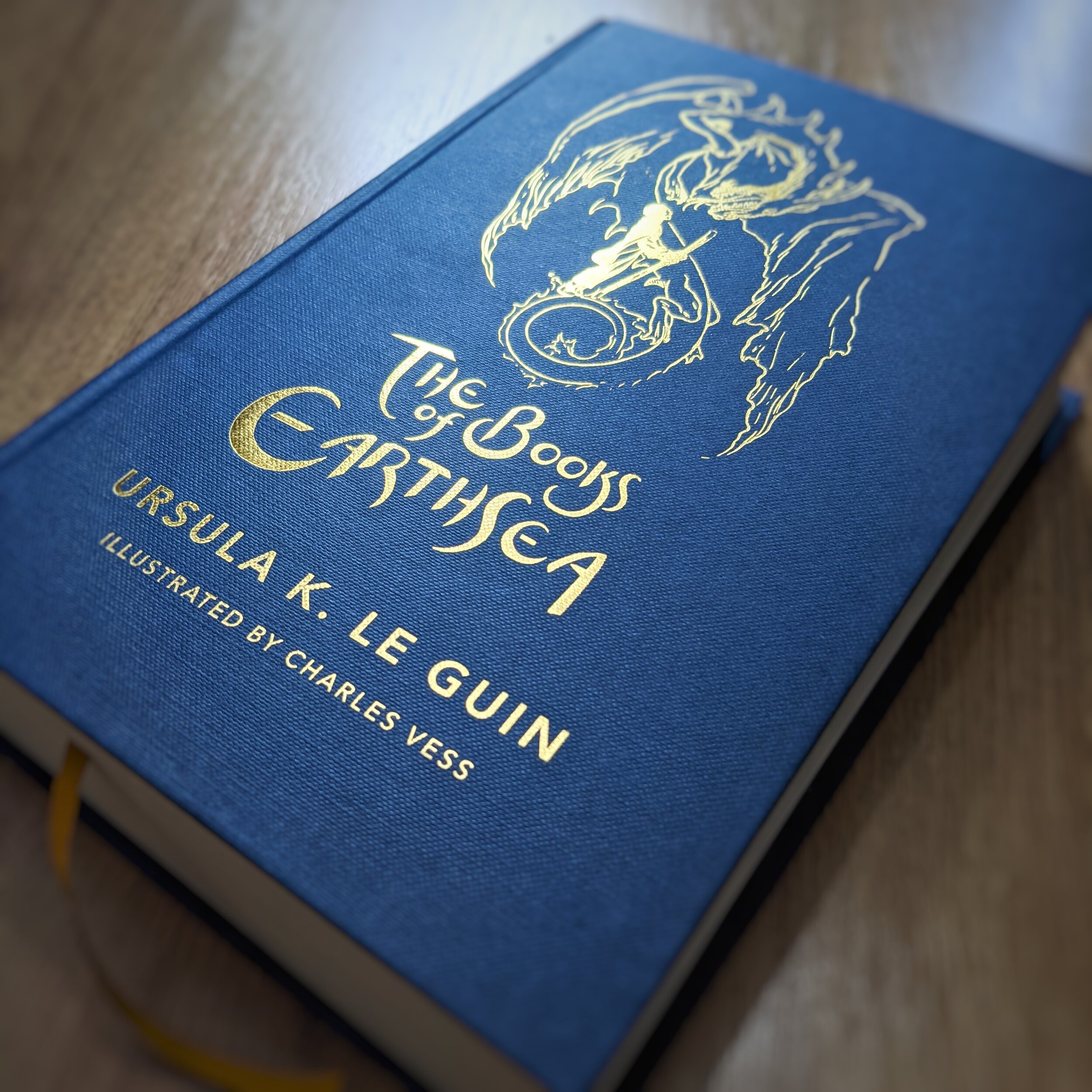Book Review: Tehanu
Ursula K. Le Guin’s fourth book of Earthsea takes us on an extraordinary emotional journey into the ordinary.
It’s been a while since I last dipped my toes into the Earthsea Cycle. The Farthest Shore was the end of an internal trilogy, and it felt like it brought things to a close, but the story didn’t end there. In Tehanu, we revisit Tenar, twenty-five years on from her escape from The Tombs of Atuan, and we watch Ged wrestle with the consequences of his sacrifice in The Farthest Shore. Both of these books converge together wonderfully in Tehanu and give a truer closure than the one we thought we had in the previous book, even though this is but the fourth book of six. Let’s unpack it:
Blurb
In this fourth novel in the Earthsea series, we rejoin the young priestess the Tenar and powerful wizard Ged. Years before, they had helped each other at a time of darkness and danger. Together, they shared an adventure like no other. Tenar has since embraced the simple pleasures of an ordinary life, while Ged mourns the powers lost to him through no choice of his own.
Now the two must join forces again and help another in need--the physically, emotionally scarred child whose own destiny has yet to be revealed....
Review
Tehanu is utterly beautiful. As always, Le Guin’s prose gives me life. The story itself was unexpected, giving focus to Tenar’s middle-years after she has eschewed the fame of restoring the Ring of Erreth-Akbe to the city of Havnor. She has chosen the ordinary life of an ordinary woman of Gont, marrying a farmer, bearing his children, and looking after his farm. By the time we meet Tenar, she is a widow, both of her children are fully grown, and she comes to care for a little girl called Therru who had been physically abused and badly burned by her own family.
Le Guin explains in her afterword that in the previous three books we had seen Earthsea through the eyes of powerful men, men of action and sorcery, and now in Tehanu she explores Earthsea from the perspective of those who have no magic, and no power in the society of the archipelago. The worldbuilding, then, takes a new turn: we’ve seen the grandeur of Earthsea, the far-flung reaches, from the Kargad lands in the east to Selidor furthest west; the north of Havnor to beyond the southernmost isles; we’ve seen dragons, and floating raft-villages; we’ve seen the underground where the dark Nameless Ones lie, and the courts of the Wise at the centre of the archipelago. We’ve even seen the Dry Land of death. Now Tehanu fleshes out the world at the smaller scale. And building functioning, believable, relatable societies is definitely Le Guin’s mastery. Le Guin explains that she also wanted to right a wrong she felt in hindsight she had done with the first Earthsea book: by introducing the phrase “weak as women’s magic, wicked as women’s magic”. Here in Tehanu we get an in-depth and sympathetic examination of what life is like for women in this deeply patriarchal society, which also holds a mirror up to our own in some ways.
As for characters, we have Tenar, Ged, Ogion, Kalessin and King Lebannen returning, and new characters in Therru, Auntie Moss, Apple, Handy and other dangerously misogynistic wizards of Roke. Our returning characters get new dimension - Tenar and Ged in particular - and it’s wonderful to see new sides to them. Therru is a brilliant character, despite saying little, and her journey of growth is compelling. The character dynamics and struggles are beautifully real. Le Guin makes the ordinary extraordinary.
The one thing I felt could have been better was that the ending felt a little abrupt. There’s masterful foreshadowing throughout the book, but the execution of the reveal at the end happens very fast. I feel it could have done with taking another chapter to really dive into Therru’s revelation. That’s mainly because the rest of the book unfolds at a fairly leisurely pace, dwelling on the things that need dwelling on. It’s a very small pacing issue, and didn’t detract from my enjoyment of the book. On the contrary, I was so emotionally connected to Therru’s journey that I was crying by the end, despite the speed of it.
I absolutely adore Earthsea and all of Le Guin’s writing. This series, and the rest of her work, holds up incredibly well today. If you’ve never read them, I highly recommend them. If you have, re-read them! :D
I’ve already read Wizard to my kids - my son (6 at the time, now 7) found the Gebbeth a little scary, but was utterly enthralled by the tale of Ged and his encounter with Yevaud, the Dragon of Pendor. When they’re a little older, I’ll probably read the rest of the series to them.
I’m very much looking forward to reading Tales from Earthsea and The Other Wind for myself.

